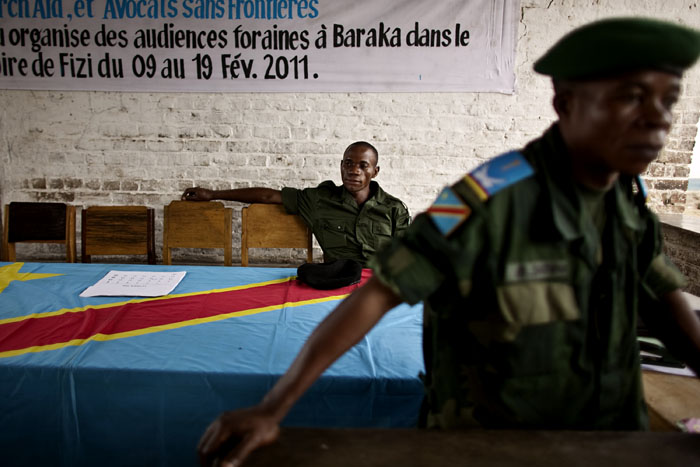
KIGALI, Rwanda — The Congolese military will set up a military justice mobile court next week in Walikale, the most mineral rich area of eastern Congo, according to an announcement by the Ministry of Mines. “Any soldier caught trading minerals is breaking the law and this means he should be punished,” said Mining Minister Martin Kabwelulu, as quoted by IRIN.
Following up on the mobile court which convicted Congolese army Lt. Col. Kibibi Mutware in February and sentenced him to 20 years in prison for helping organize a mass rape that occurred on New Year’s Day, the mobile court in Walikale already has 18 cases in the docket. These cases reportedly deal with sexual violence, theft, and other crimes. Concurrent with the announcement of the court, the Congolese government issued a warning in Walikale that the military should not be involved in conflict minerals, and that cases of military officers engaged in illegal mining or corrupt activities may follow.
This is a potential game-changing initiative, but it must be supported and followed up. No conflict minerals cases have ever been tried by the military justice system in Congo. This court, based in the heart of the area that produces the most minerals in eastern Congo and coming concurrently with the government warning, could bring the first accountability. It also comes at the same time as the escalating, violent dispute at the large gold mine at Omate in Walikale between two companies, one of which belongs to Army Chief of Staff Gen. Gabriel Amisi. The court should investigate General Amisi and his officers, given the high level of evidence of Amisi's involvement in the mine by the U.N. Group of Experts on Congo in 2010.
The court has jurisdiction to try cases up to the rank of colonel, but it should also be followed up with military justice cases on higher level officers such as Gen. Amisi. As one military officer told Enough, whether these commanders are tried or not "depends on the will of the most senior commanders, but also the U.S. The United States can influence those senior commanders, even more than President Kabila can."
Conflict minerals cases would be tried under Article 113 of the Military Penal Code under the "violation of military order" and follow-on military directives on illegal mining.
Photo: Congolese soldiers await the start of morning court inside a makeshift courtroom in the town of Baraka in eastern Congo (AP)

